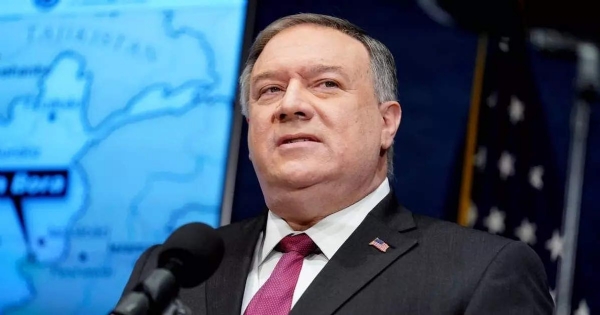India-Pakistan on brink of nuclear attack after Surgical Strike in Balakot: Mike Pompeo's explosive revelation
Pompeo explains the background of US efforts to reduce India-Pakistan tensions following the suicide attack at Pulwama in Jammu and Kashmir that killed 40 Indian troopers. The attack was blamed on Pakistan-based Jaish-e-Mohammed (JeM). At the time, Pompeo was in Hanoi, Vietnam, as part of then president Donald Trump’s delegation for a summit with North Korean leader Kim Jong-un.
Total Views |
Washington DC, January 25: Indian and Pakistani officials both believed the other side was preparing to use nuclear weapons in the aftermath of the 2019 Pulwama suicide attack and the US had to “convince each side that the other was not preparing for nuclear war”, former US secretary of state Mike Pompeo writes in his new book.

“I do not think the world properly knows just how close the India-Pakistan rivalry came to spilling over into a nuclear conflagration in February 2019. The truth is, I don’t know precisely the answer either; I just know it was too close,” he writes.
There was no immediate word from Indian officials on Pompeo’s revelations in his book.
Pompeo explains the background of US efforts to reduce India-Pakistan tensions following the suicide attack at Pulwama in Jammu and Kashmir that killed 40 Indian troopers. The attack was blamed on Pakistan-based Jaish-e-Mohammed (JeM). At the time, Pompeo was in Hanoi, Vietnam, as part of then president Donald Trump’s delegation for a summit with North Korean leader Kim Jong-un.
“I’ll never forget the night I was in Hanoi, Vietnam when – as if negotiating with the North Koreans on nuclear weapons wasn’t enough – India and Pakistan started threatening each other in connection with a decades-long dispute over the northern border region of Kashmir,” he writes.
Former US Secretary of State Mike Pompeo has told in his book, Never Give an Inch that Pakistan was gearing up for a nuclear attack in the wake of the Balakot surgical strike in February 2019, and that India is preparing its own escalatory response.
— Tanmay Shankar 🇮🇳 (@Shanktan) January 25, 2023
Pompeo writes he was awakened to speak with his Indian counterpart, who “believed the Pakistanis had begun to prepare their nuclear weapons for a strike”. He says the Indian side informed him that New Delhi “was contemplating its own escalation”. Pompeo adds, “I asked him to do nothing and give us a minute to sort things out.”
Though Pompeo refers to his Indian counterpart as “him”, the post of external affairs minister was held at the time by the late Sushma Swaraj. However, Pompeo also writes in the book that his “original counterpart [on the Indian side] was not an important player on the Indian foreign policy team” and that he “worked much more closely with National Security Adviser Ajit Doval”. Thus, it is unclear exactly who he is referring to.
Pompeo and NSA John Bolton, who was with him in a tiny secure communications facility in their hotel in Hanoi, then contacted the Pakistani side. “I reached the actual leader of Pakistan, General [Qamar] Bajwa, with whom I had engaged many times. I told him what the Indians had told me. He said it wasn’t true,” Pompeo writes.

